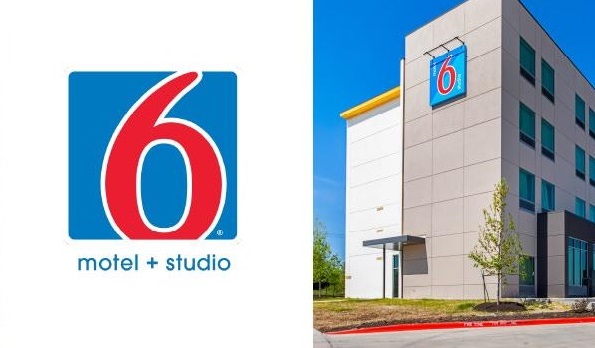
THE 7 FUNDAMENTAL PILLARS THAT SUPPORT A STRONG TRAVEL POLICY
Business travel is full of variables. Because of that, it’s important to establish a corporate travel policy that minimizes confusion and ambiguity by addressing every aspect of work travel. Employees should know what to anticipate when they’re on a trip and what’s needed from them upon their return. Establishing a protocol will help keep your team safe and organized while also reducing your business travel spend.
The results of a Rockbridge research report shed light on the importance of enforcing – not just crafting – a company-wide travel policy. Their study, which spanned several countries, determined that an employee who makes decisions contrary to policy ends up costing the company roughly $2,881 more per year than their in-policy counterparts.
So, you recognize the benefits of implementing and adhering to a travel policy. But before you can delve into the particulars, it’s important to take a broader look at the travel trends of your company. What are your travel program goals and priorities? Do you want to allow more freedoms based on employee type? What image do you want your company to portray outside the office? Is your current business travel efficient and organized or are you looking to make adjustments? If changes are needed, what better time than when electing to update your travel policy? To predict your expenses, you’ll need to research the cost of an average flight per mile, hotel rates, meals, and ground transportation. Some choices – such as booking in advance and having travelers share rooms – can result in dramatic savings. Prioritize lead time and you’ll likely be rewarded with better rates and a reduction in chaos.
Most companies elect to cover business travel only (events, training, meetings, etc.) while leisure travel is expected to come out of the employee’s pocket. However, some businesses encourage their employees to get out and explore their destination as a perk of the job. Determine where your company stands on this matter.
NOW FOR THE NITTY GRITTY – MOST STRUCTURED POLICIES COVER THE FOLLOWING TOPICS
1. TRANSPORTATION
Airline, train, public transit, rental cars, taxi cabs or Lyft / Uber, and fuel reimbursement
——–
Many policies instruct travelers to use the most cost-effective mode of transport. Other, more image-conscious industries, prefer UberX or high-end rental cars during business trips. Be sure to include a suggested mode of transport to and from airports. If the employee is paying to leave their personal vehicle at the airport, be prepared for that expense. Form back-up plans in the event that your designated rental car provider is out of vehicles in the required class. Be sure to address which insurance protection travelers should opt for and explain refuel expectations. Regularly review fuel costs by season and cover how expenses will be reimbursed.
2. LODGING
Hotel or apartment accommodations
——–
Set guidelines based on a hotel segments, nightly room rates, chains, and distance from work site expectations. Many companies specify that doubles, when applicable, should be the required room type and clearly outline whether the business will cover amenities such as mini bar charges, Wi-Fi, paid parking, etc. It’s also a good idea to document which incidentals are covered. You may want to mention smoking and property damage prevention and how you will address associated fees.
If this level of detail proves too cumbersome a feat to monitor in-house, you could opt to designate a travel management company or booking tools to funnel reservations through a single source. This helps enforce policy and capture booking data for future reference. Travel management companies like CLC Lodging ensure that travelers receive negotiated rates and that lodging programs are optimized to meet travel program goals.
3. ON-SITE SPENDING
Meals, alcohol, and entertainment
——–
Many companies find it easiest to offer a daily allowance that covers breakfast, lunch, and dinner. It’s then up to the employee how best to spend their daily meal allowance. Be sure to include a statement about alcoholic beverages – usually to clarify that they will be at the employee’s cost, unless they’re with a client. Consider specifying that the highest-ranking employee present should pay. Many corporate travel policies cover tips up to twenty percent. It’s often a good idea to set a limit or range for entertainment expenses and require managerial approval for any reimbursement above and beyond this amount.
4. SECURITY
Personal safety and the protection of work materials, Duty of care
——–
Do you have a way to identify where your employees are in case of an emergency? While they’re traveling for business, your employees are your responsibility, so it’s important to have procedures in place to respond to personal risk, severe weather, or political unrest in a foreign country. Establish a point of contact for traveling employees in the event of an emergency. If they regularly visit high-risk destinations, offer additional safety / security training. Consider instituting a regularly-scheduled situation report for travelers or sign-up for alerts from the U.S. State Department.
Set up guidelines for borrowing company computers and other technology. Will the company buy or lease equipment for travelers? Will you issue company phones or expect employees to provide their own. There are also many alternative methods of communication to consider, such as Whatsapp, Skype, or company plans through wireless service providers. Instruct travelers on security protocols and safe behaviors to prevent data breaches before their next trip.
5. GIFTS AND FAVORS
Bought or received during the course of business
——–
Most companies stipulate that employees are not permitted to accept a gift worth $50 or more from any person or firm that your company intends to conduct business with. This could include multiple “gifts” with a combined value that adds up to $50. However, be especially careful when traveling abroad, since these standards change by country.
6. PAYMENT SYSTEM
How should employees pay for things on trips?
——–
There are many methods of payment available to business travelers. Selecting the most effectual model will need to be a company-specific decision based on your industry and scale. Some companies issue credit cards to their travelers. Others pre-load funds onto debit cards and cover only costs up to that specific amount. Many larger companies or those with a substantial volume of short-term crew members often utilize direct-bill arrangements with suppliers and travel management companies. This booking/payment structure helps take some of the risk and burden off your company.
7. APPROVAL PROCESS
Reimbursement for expense claims
——–
Designate approvers for expenses incurred during travel and communicate that person’s information to travelers. Prior to any trip, business travelers should know what paper trail (if any) will be needed upon their return. For the purposes of maintaining accurate cash flow, it’s smart to set a strict time frame in which travelers must submit their expense reports and, in turn, receive their reimbursements. Most claims specify the category, date, amount, location, and business purpose for each expense. Many companies elect to require only receipts above a threshold dollar amount.
IT’S BUILT. NOW WHAT?
Even the best travel policy isn’t effective if it isn’t properly communicated and enforced. Distribute the document and house the latest version in a place employees can access on demand. It may help to discuss the order of operations in a mock trip. Cover everything a traveler would need to know from departure to return if all goes according to plan. That way, they know what’s ideal and can strive for that sequence. In the event of something unanticipated, they can refer back to the policy for advice and/or damage control. It may be necessary to include a section covering the consequences of not following the set guidelines and procedures. Detail the detrimental safety, health, or financial ramifications of breaching policy.
Though it’s unfortunate, some business travelers will try to break the rules. In a 2016 study of 1,000 business travelers conducted by the Chrome River, expense reporting fraud cost U.S. companies more than $2.8 billion per year. Using a travel management company helps keep spending in check by adhering to booking guidelines and preventing unauthorized charges during stays. Consider giving your company a competitive edge by partnering with a comprehensive lodging management provider.
Now that you’ve established a solid foundation for your policy, let us help you manage your lodging.
We’re here to help! Contact CLC Lodging at 1-866-369-4755 today to see how you can optimize your travel program and control your lodging costs.
Recent Posts
-

Booking Motel 6 and Studio 6 with CLC Lodging
Mar 29, 2024 | -

FLEETCOR Announces Rebranding to Corpay
Mar 07, 2024 | -

The Best Tech Gadgets of 2024 to Take on Business Travel
Jan 30, 2024 |